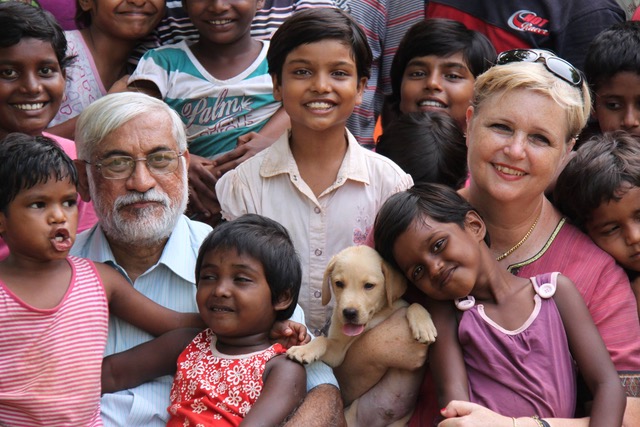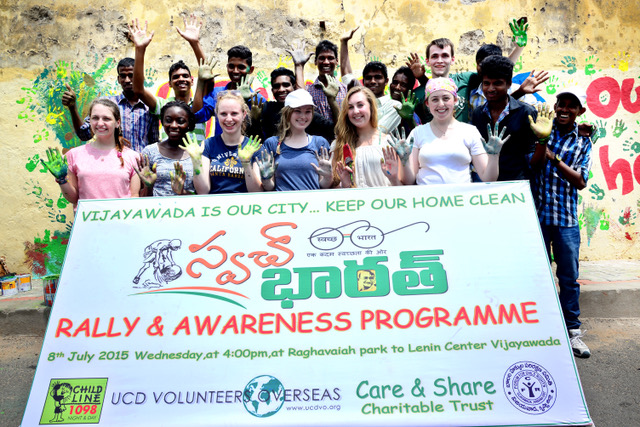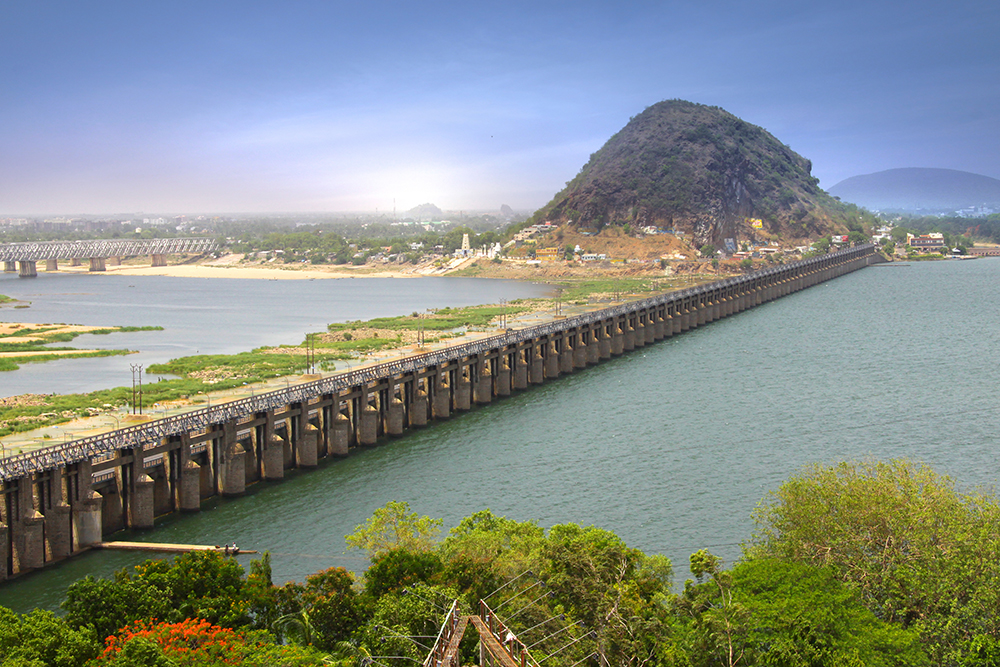Care & Share was born in 1991, when Carol Faison, an American living in Venice, Italy, decided to reach out to poor kids in an Orphanage at Manginapudi in Andhra Pradesh on the Bay of Bengal. Her brother, Tony Rigopoulos, a student of Indology has just returned from a research and study trip to India and had shared with his family pictures of the Orphanage that he visited. The family decided to each sponsor a child and Carol offered to contact the Priest in charge of the Orphanage and to help coordinate the work. Within weeks, friends and relatives generously responded to Carol’s appeal and every child living in the Orphanage in Manginapudi, were sponsored. Thanks to the power of word-of-mouth communication and the dedication of our initial donors, in the ensuing years the sponsorship’s grew to embrace thousands of children.Today, what had begun as a small effort benefiting a handful of kids in a nondescript village has evolved into an organisation whose work is having a profound impact on hundreds of destitute children.
About Us
Who we Are?
Noel Harper & Carol Faison

In 1994 on a trip to Vijayawada Carol met Noel Harper who was at that time the Director of the Social Service Centre of the Catholic Diocese of Vijayawada and they began a collaboration on this project. In 1997 Carol Faison and Noel Harper founded Care & Share Charitable Trust in Vijayawada, India (Registration No: 242/1997). Care & Share Charitable Trust is registered with the Income Tax authorities (12A dated 31.03.1998 and 80G dated 20.10.2009). It is also registered with the Ministry of Home Affairs, Government of India, underthe Foreign Contribution Regulation Act for the receipt of foreign funds (FCRA No: 010260151 dated 8th December 1998 and renewed on 10.08.2016).
What we do?
Care&Share has helped more than 10000 children below the poverty level in Vijayawada (Andhra Pradesh, India). Care&Share helps street children, children of sex workers, physically challenged kids and shelters orphans, abandoned babies and assists juveniles detained in the Observation Home (local reformatory). Since 1997 we have built and run 9 schools in different slums and in our children’s villages. Since 1995, Care&Share has rescued over 1000 street children, 165 infants, HIV+ and AIDS orphans of Vijayawada.From 2000 the rescued children have been sheltered in our 27 acre “Daddy’s Home” Village in the countryside. Due to the dramatic increase of AIDS the new 35 acre campus “Butterfly Hill” was built in 2005 for the many new orphans and HIV+ children in need of a home. We cook over 5000 meals a day for our kids in Daddy’s Home and Butterfly Hill, and for those in the rest of our facilities scattered around the city and slums. We also have a daily milk program for 500 kindergarten children since year 2000. Most of these children have free medical visits, worm tablets and access to Care&Share vaccination programs.

Where we work?

Care & Share operates in the city of Vijayawada in the Krishna District and in the surrounding districts of Andhra Pradesh. The state of Andhra Pradesh was divided on 2nd June 2014 and the north western part was formed into the new state of Telangana with Hyderabad as the capital. The residual State of Andhra Pradesh, dubbed the Sunrise State, now comprises the region of Rayalaseema in the south west and the Coastal region to the east and north east. It is the tenth most populous state with a population of about 50 million. The capital of the new Andhra Pradesh is the ancient city of Amaravathi. Andhra is well known for its legendary dynasties, its rich literature, its melodious Telugu language, its vibrant Kuchipudi dance, the swarming pilgrimage destinations of Puttaparthi and Tirupati. Thanks to its massive agricultural production, it is often known as India’s “rice bowl.”
Today, in spite of the aggressive campaign launched by the local government to transform it into the “number one state” — primarily through the heavy investments in information technology that have attracted the praise of Bill Gates — Andhra remains a largely impoverished state. In addition, it vaunts the dubious distinction of having the highest concentration of HIV infections in the entire Indian Union.Vijayawada — sitting on the banks of the sacred river Krishna — is Andhra’s second largest city, after Vishakapatnam. It is inhabited by an estimated population of 1.2 million. With more than 200 long-distance trains passing through every day, it is one of the nation’s busiest railway junctions. Moreover, National Highways 5 and 9 — which connect Delhi, Mumbai and Kolkata with the south of India — bring a steady flow of trucks and buses. 2,500 buses leave from thePandit Nehru Bus Station every day. Because of its high accessibility, more than 40,000 people — among them, scores of street children — migrate to the city every year. Many come from the rural parts of the State and many more from across its borders to escape underdevelopment, unemployment, water scarcity or food shortages.
